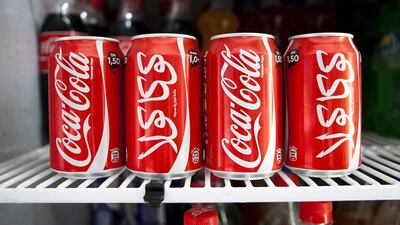The introduction of excise taxes slated to be introduced October 1 is on track and the Federal Tax Authority plans to publish a price list of items that will have to be paid monthly by companies, the director general of the authority said on Wednesday.
The UAE plans to introduce excise tariffs at a rate of 100 per cent on tobacco and energy drinks and 50 per cent on sugary drinks as part its efforts to combat unhealthy habits and shore up government revenue hit by lower oil prices.
Businesses that deal with excisable items, which are estimated at 250 companies, should register before October 1, Mr Khalid Al Bustani said in Dubai.
The Federal Tax Authority plans to publish a list of taxable items based on the retail market price, he said.
The tax will be applied to the higher price of two options: either to the price published by the FTA, which be available on the authority’s website, or the retail selling price, Mr Al Bustani said.
“We will have a periodical review of the price list (published on the website) because we need to see the market trends regarding these excisable goods,” said Mr Al Bustani.
The tax will be paid monthly with payment taking place within 15 days after the end of each month. The first collection will take place on November 15.
___________
Read more:
Experts say new UAE taxes will not drastically change consumer behaviour
Tax in the UAE: Everything you need to know about VAT and a little bit more
___________
The UAE is the second country in the Arabian Gulf to introduce excise tax after Saudi Arabia, which began collecting the levy in June. Other countries are expected to follow suit and have until the end of 2018 to introduce the tax, according to a pan-Gulf agreement signed by all six countries of the Gulf Cooperation Council.
“Implementing excise tax in accordance with international best practices is the culmination of an extensive process,” said Mr Al Bustani. “The excise tax has been adopted to reduce the consumption of goods that damage people’s health.”
Individuals or businesses subject to the tax include producers of excisable items, importers, stockpilers like hotels and restaurants and warehouse keepers.
The introduction of excise taxes and value-added tax on January 1, 2018 are expected to boost the inflation rate by a one-off 1.4 per cent, Mr Al Bustani said in August.

